Bollywood superstar Aamir Khan's new film 'Sitaare Zameen Par' is geared up for a release this Friday, and its teaser-trailer has been met with an overwhelmingly positive response from the public. After the disappointment of his previous film 'Laal Singh Chaddha', Aamir, who once contemplated quitting acting, is back in the spotlight, promoting his new venture with great fervor.
This promotional effort is visibly paying off, creating an optimistic buzz for 'Sitaare Zameen Par'. However, amidst this buzz, critics denouncing Bollywood as 'Remakewood' have reemerged, targeting Aamir’s film with the familiar critique that it's 'just a remake.'
Factually speaking, they aren't incorrect. Aamir's film is indeed a Hindi adaptation of the Spanish film 'Campeones' (2018). Moreover, a Hollywood remake of 'Campeones' starring three-time Oscar nominee Woody Harrelson as a basketball coach has also been produced in 2023. Aamir fills this role in 'Sitaare Zameen Par'.
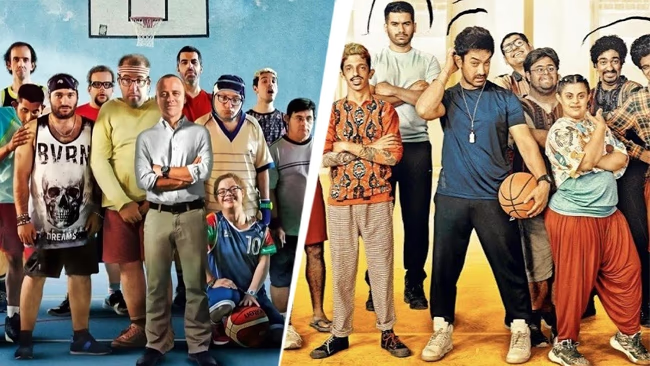
Source: aajtak
In recent years, the term 'remake' has been used negatively, especially on social media, aimed at undermining the film's originality. But is the word 'remake' truly so derogatory in the cinematic realm that it should be used as a pejorative? Why should a film be judged inferior just because it’s a remake?
Let’s delve into this question. If we look back at film history, 'remake' has in fact been a trend that advanced cinema. Some global and even Indian master filmmakers embraced this idea, yet today it’s often misconstrued.
A Hunger for Storytelling and Diverse Adaptations
Remakes epitomize how different directors can reinterpret a single story through their unique perspectives. For instance, 'Sholay' (1975) was remade as Ram Gopal Varma’s 'Aag' (2007), which is often cited as a failed adaptation, while Amitabh Bachchan's 'Agneepath' (1990) was successfully reimagined with Hrithik Roshan starring in 'Agneepath' (2012). Adaptations aren’t new, nor have audiences always despised them. Recently, however, the mere mention of a 'remake' seems to turn audiences away.
In India’s modern cinema era, filmmaker Anurag Kashyap has established himself as a filmmaker whose work you might agree or disagree with, but his cinematic acumen is undeniable. A few years ago, in an interview with Galatta Plus, Anurag shared insightful commentary on current filmmaking practices, offering a perspective that’s relevant to any discussion on remakes.
He said, 'We’ve become overly concerned with appearing intellectual, often forsaking storytelling in favor of existential preaching. In the 90s or recently in the 2000s, films began evangelizing filmmakers' knowledge instead of narrating stories. But historically, all grand masters of cinema focused exclusively on storytelling, and these films thrived at the box office.' He further illustrated his point by referencing the Indian classic film 'Boot Polish' (1954).
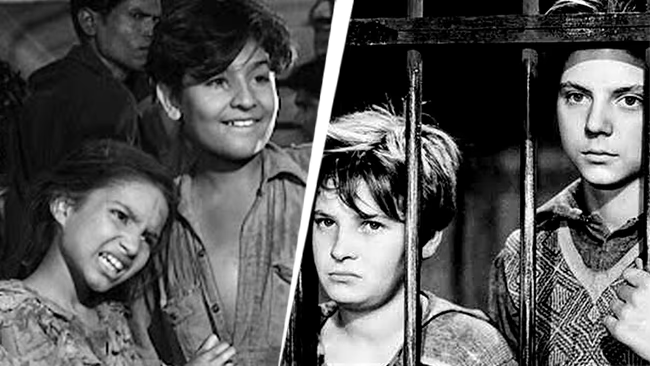
Source: aajtak
Produced by Raj Kapoor and directed by Prakash Arora, it’s believed that Raj Kapoor also ghost-directed 'Boot Polish'. Shown at the Cannes Film Festival, it garnered critical acclaim, earning a special mention for child actress Naaz. However, this Cannes-screened Hindi classic was an adaptation of the Oscar-winning Italian film 'Shoeshine' (1946).
Both films revolved around shoeshine boys, yet they are strikingly different experiences due to distinct character struggles and social contexts. 'Boot Polish' isn’t even the earliest instance of directors adapting foreign stories for their local audiences, further proving that remakes are an age-old cinematic tradition.
The only Indian film to win Cannes’ top prize, Chetan Anand’s 'Neecha Nagar' (1946), was adapted from Maxim Gorky’s play 'The Lower Depths' (1902). The legendary Japanese director Akira Kurosawa also adapted this play into his film 'Donzoko' (1957). Both directors interpreted the same material through their distinctive cultural lenses, resulting in uniquely different cinematic expressions.
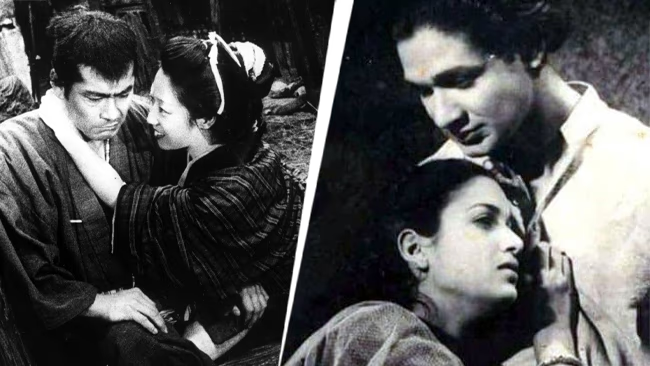
Source: aajtak
When Audiences Embraced Remakes Wholeheartedly
Filmmaker Priyadarshan has delighted audiences with a string of iconic comedies. His film 'Maalamaal Weekly', beloved by comedy fans, is actually based on the Hollywood movie 'Waking Ned' (1998), albeit without official credits.
Would learning this dampen your enjoyment of 'Maalamaal Weekly'? If so, you must ask yourself whether you enjoy film narratives or are preoccupied with scrutinizing the ethics of filmmaking. Is it reasonable to impose fabricated ethics on any art form? Art creators in every medium have drawn inspiration from one another. This 'inspiration' is integral to artistic evolution.
If there’s any ethical consideration, it’s only whether a filmmaker acknowledges the inspiration from another’s work. Otherwise, the typical moviegoer has always enjoyed stories on the big screen, beyond the 'remake vs. original' debate.
The English novel 'Mrs. Doubtfire' was published in 1987, and a Hollywood adaptation followed in 1993, starring Robin Williams. This film left a significant impression on Indian actor-filmmaker Kamal Haasan, who decided to present it to his local audience, thus 'Chachi 420' (1997) was born. 'Chachi 420' is often considered the best among various adaptations of 'Mrs. Doubtfire'.
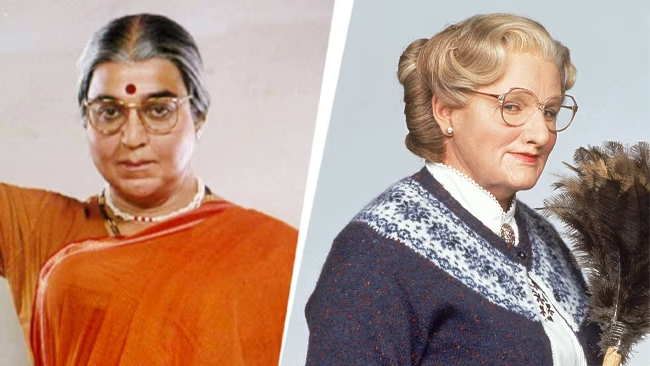
Source: aajtak
The 1987 Hong Kong action film 'City on Fire' inspired filmmakers worldwide. Quentin Tarantino, a modern Hollywood legend, created the iconic film 'Reservoir Dogs' inspired by it. Bollywood director Sanjay Gupta’s 'Kaante' drew inspiration from these films, and Tarantino himself considers 'Kaante' the best among 'Reservoir Dogs’ inspired films.
Among Shah Rukh Khan’s iconic films, 'Baazigar' (1993), inspired by the novel 'A Kiss Before Dying' (1953), had already been made into a film in 1991. Similarly, Shah Rukh's 'Baadshah' (1999) drew inspiration from the Hollywood film 'Nick of Time' (1995). However, while Hollywood presented the story as an action-thriller, Bollywood infused it with comedy. Not only did audiences enjoy these films, but they also attained cult status. Clearly, being a remake isn’t a sufficient reason to dismiss a film. In fact, remakes occasionally surpass the original.
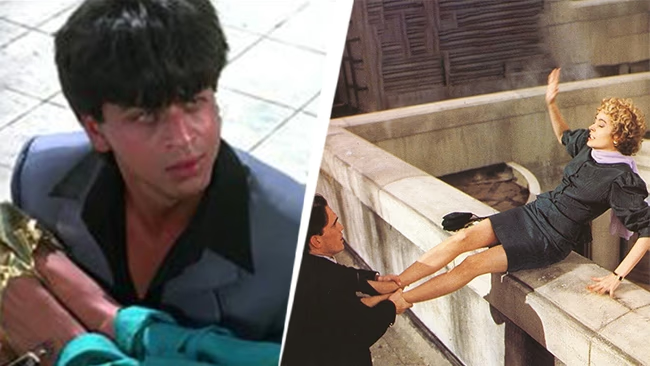
Source: aajtak
Aamir Khan’s 'Ghajini' is often deemed superior to its original Tamil version. Similarly, Salman Khan’s 'Tere Naam' surpassed the original Tamil film 'Sethu' in audience preference. Akshay Kumar's 'Rowdy Rathore' and Ajay Devgn's 'Singham' follow suit as successful remakes.
Growing Antipathy Toward Remakes – Why?
In recent years, the negative perception of 'remakes' likely stems from the sudden influx of South Indian films being remade in Hindi. Another factor is that viewers previously had limited access to original films, making remakes feel novel. However, the OTT revolution during lockdown opened a cinematic universe, providing audiences time to explore multiple industries’ offerings.
Streaming platforms offered the convenience of watching foreign films in your language with subtitles, eliminating the need to understand their native languages. Consequently, audiences often experienced the original films before the Bollywood remakes became available, diminishing interest in purchasing tickets for repeated narratives. Moreover, filmmakers sometimes failed to infuse new perspectives into stories, opting instead for generic copies. Such remakes failed to impress audiences and performed poorly at the box office.
In the post-lockdown years, over 20 Bollywood remakes have flopped, including films like 'Bachchan Pandey', 'Vikram Vedha', and 'Shehzada'. These were remakes of popular South films. Aamir Khan's 'Laal Singh Chaddha' also fits this category since its original, 'Forrest Gump', has been widely watched. Thus, the Hindi adaptation had limited appeal to begin with.
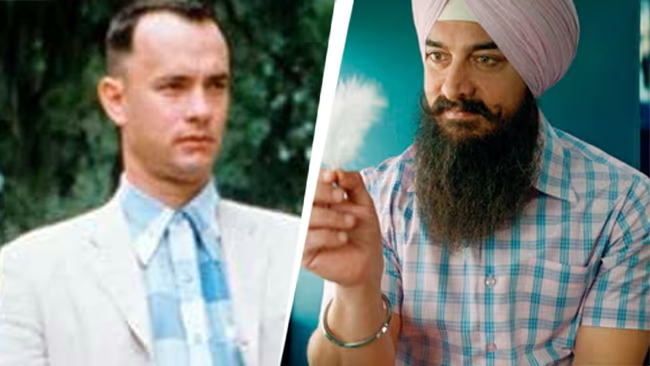
Source: aajtak
Moreover, as Aamir himself acknowledges, his performance level was lacking, contributing significantly to the film's failure. However, 'Laal Singh Chaddha’s writers aptly adapted the Hollywood film to an Indian setting. Following lockdown, social media's targeted derogatory campaigns against Bollywood have intensified. Critiques of the industry now often involve labeling it with derogatory tags like 'remake'.
Does Being a Remake Dilute a Film’s Strength?
The key takeaway is that viewers shouldn’t avoid a film based merely on the 'remake' label. A more pertinent question is whether you’ve watched the original version, and even if you have, do you desire to explore the narrative through another filmmaker's vision? For instance, the original film that inspired Aamir’s 'Sitaare Zameen Par' isn't widely known among Indian audiences.
It was briefly available on a few Indian OTT platforms but not anymore. Even if someone has watched the original, they can enjoy the same story in Hindi within the context of Indian society. Nobody can predict how 'Sitaare Zameen Par' will resonate with audiences until it hits theatres. Preferences will vary. However, dismissing Aamir’s or any film solely because it’s a 'remake' is unwarranted.




